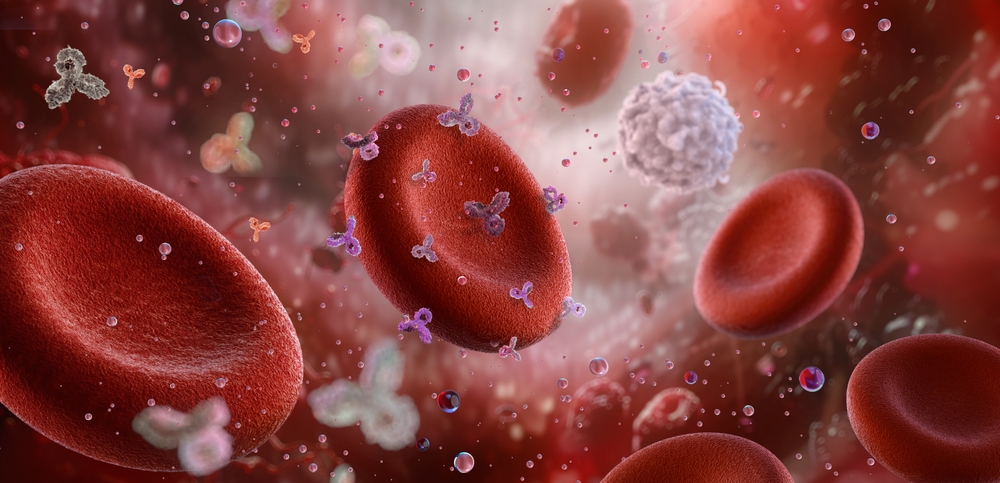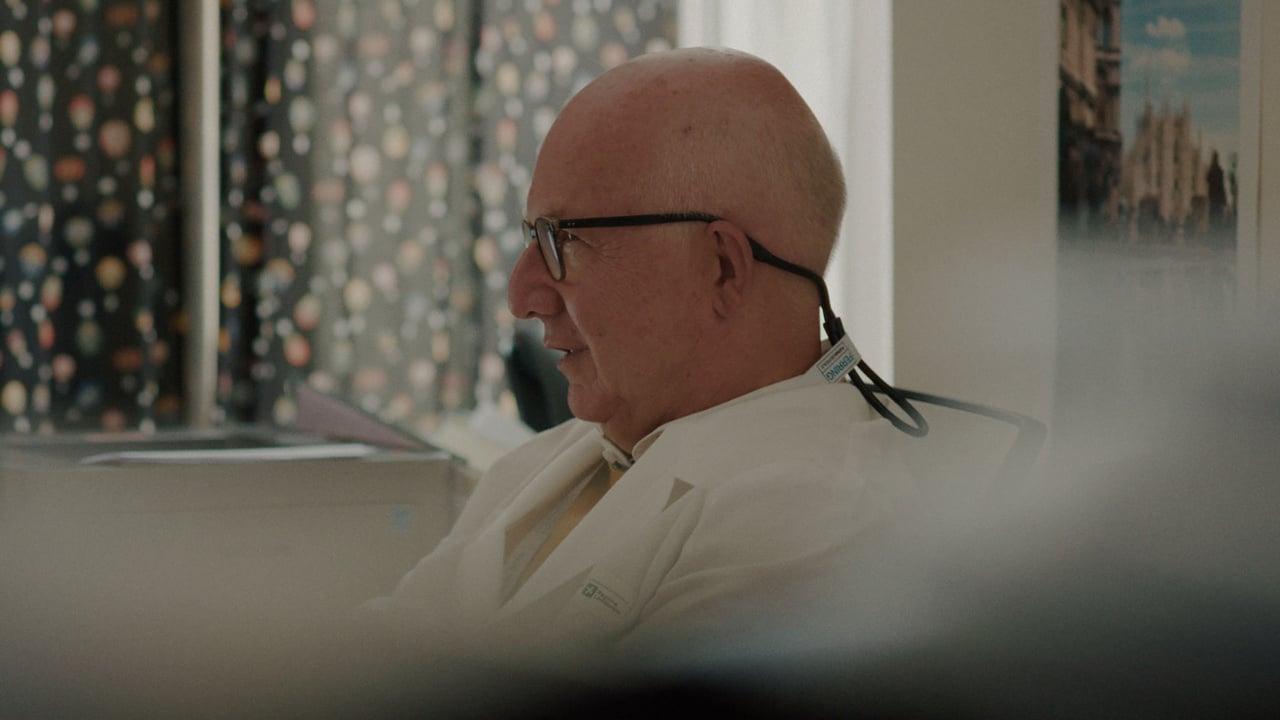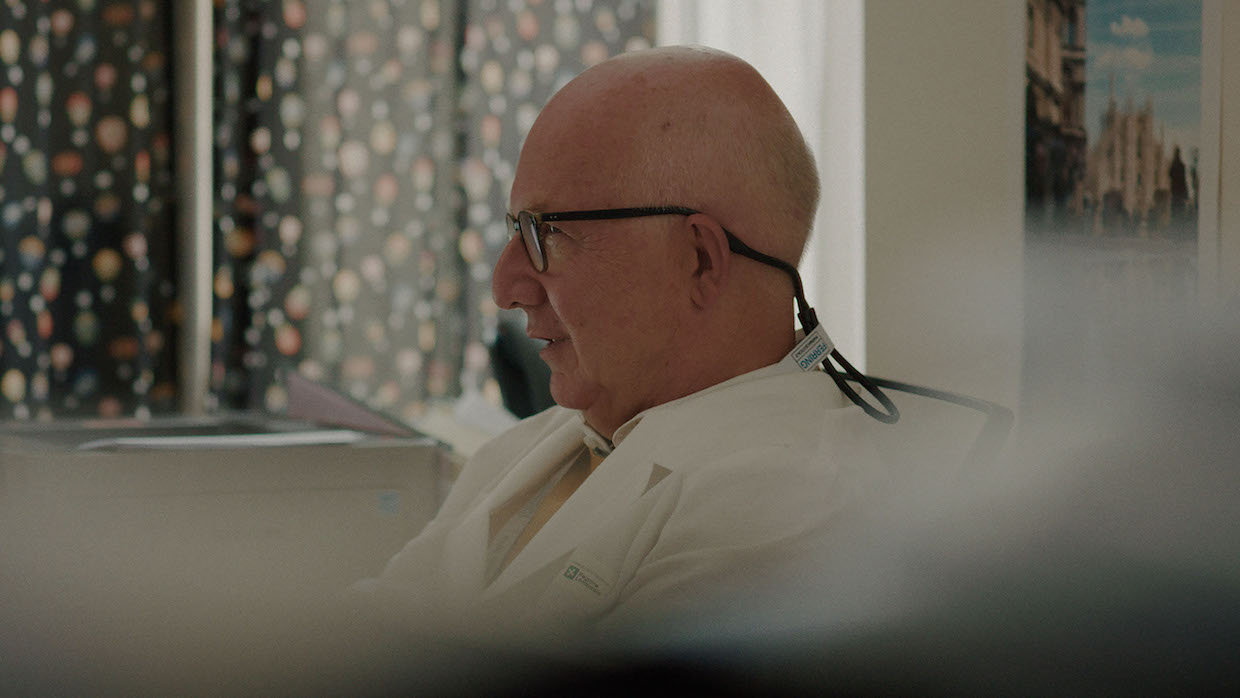At the Niguarda public hospital in Milan, Italy, Dr. Maurizio Bini is an endocrinologist specializing in treating patients undergoing in vitro fertilization and patients undergoing gender reassignment therapy, all under the same roof.
There, patients speak honestly with Dr. Bini over issues that define their inner and outer lives — their dreams of bearing children or their aspirations to become their most honest selves — issues which have become politically controversial.
With state-funded, free health care, patients can choose specific qualities about their future children such as height or skin and eye color. Meanwhile, adults — and children, with the approval of their guardian — can choose to become more feminine or more masculine, change their genitals, remove or add breasts, and more.
This is the setting of Director Gianluca Matarrese’s film “GEN_.” It’s a prefix that ties the film’s seemingly disparate subjects together: genetics, gender, genotype, genitals, genesis.
The film’s own genesis began when Mataresse’s co-author Donatella Della Ratta, an anthropologist and a professor at John Cabot University in Rome, became interested in writing about hormones. Her gynecologist suggested she meet Dr. Bini, and thinking the experience could inspire a new film project, Ratta asked Matarrese to come with.
After a half day in his office and sitting in on patient conversations, he had the vision for the film.
“I was overwhelmed by all this humanity,” Matarrese said.
The documentary, an entry in the 2025 Sundance Film Festival’s World Cinema Documentary Competition, takes place almost entirely in the physical space between Dr. Bini and his patients as they talk through their treatments, how they arrived at this moment, and how the doctor can help them.
At one point, Dr. Bini asks a mixed-race couple what skin color they would like their child to be, darker or lighter.
“Should I select regular white, or would you rather have a Hispanic tone?” the doctor asks.
“Maybe a little more … ” the Hispanic woman trails off. “For his family, a little whiter,” she says, nodding. “It’s sad to say, but we’ll avoid lots of problems.”
Matarrese shoots the conversations from the side, tight, with a shallow depth of field that emphasizes the intimacy of delicate subjects.

“I never wanted to be frontal,” Matarrese said. “I never wanted to fail to feel the camera is there, like in the middle of the conversation. That’s why I’m always on the side. … It’s where I really felt I was in a zone, myself. It’s where I was (most) fascinated because that was the only time I really started to ask myself questions I never asked.”
The patients give themselves completely over to Dr. Bini, the film’s main character. He’s 65 years old, bald, a little histrionic and sometimes inappropriate, but the way he treats his patients evinces a deep-seated humanism, often riding the line of what’s legal in favor of helping people. For many, he is their last hope.
Though at times Dr. Bini and the clinic push back on their patients. One husband asks if they can choose a sperm donor who looks like him. No, it’s too extreme a choice. That would be eugenics, the doctor says. Later, a young woman says she wants sexual reassignment surgery and intimates she also wants feminizing cosmetic surgery. Dr. Bini admonishes her, saying he’ll be her guide. He’ll do the vaginoplasty, but “many biological women would kill to look like you. So you don’t have to think about breaking bones in your head.”
Some people want to go fast, but there are rules, Matarrese said.
“There’s this trust,” Matarrese said. “They put total trust in the doctor as the figure of the ‘doctor.’ And that comes from probably our culture, especially because in Italy it’s different (than) in the States. We have access to health care free of charge. … It’s very democratic and it comes from this old and probably ancient way of thinking, the doctor as the saver, or the one who knows everything. … So people will tell everything. People will be totally free. It’s your last solution.”

The film also shows other members of the clinic who will have to forge their own path when Dr. Bini soon retires.
“I (also) filmed a lot of the young the new doctor, Kiara. … She’s probably 25, 26, and she is just finishing her studies as a doctor, and you see that she has a different relationship with her patients,” Matarrese said. “She tries to be empathetic and maybe to build the trust Dr. Bini doesn’t need to build because he’s this figure of power. … She had to like work more to build this relationship. So you also see the difference of two generations, the new one and the old one, of doctors.”
For American audiences, for whom in vitro fertilization and gender affirming care can be prohibitively expensive, seeing these treatments be provided for free may be what feels the strangest.
In one scene, a prisoner accompanied by a prison guard discusses that she would like to transition, have a mastectomy and be transferred to a men’s prison. Dr. Bini says he’ll provide the treatment, which will, as for anyone, be free.
As he leaves to grab the medicine, the guard asks the prisoner, “Are you happy?”
“Very happy!” she responds.
Is the film trying to advance an agenda? Is it a militant film? It’s not meant to be, not on its face, Matarrese said. It’s a vision of a society where you take care of the individual rather than let the state make decisions for them, which does stand against the vision of the world in the United States.
“The individual (in the U.S.) is left alone by himself, and the one who has more rights is the one who has more money. The one who is more heard is the one who talks louder, and the one who is elected is the one who has the most following,” he said.
And in the Italian context, the treatments are seen as somewhat radical, too.
“It’s still conservative (in Italy), and this region that the hospital is based in is very Catholic,” he said. “But in any case, there’s still this democracy, and in health care … this place is a little miracle,” he said.
‘GEN_’ in-person screenings
- 3 p.m., Jan. 24, Egyptian Theatre
- 1:50 p.m., Jan. 25. Megaplex Redstone 3
- 12:30 p.m., Jan. 27, Broadway Centre Cinemas 6, Salt Lake City
- 2:45 p.m., Jan. 31, Holiday Village Cinemas 2
- 10:20 a.m., Feb. 2, Megaplex Redstone 3
Online
- 8 a.m., Jan. 30, through 11:55 p.m., Feb. 2











Leave a Reply